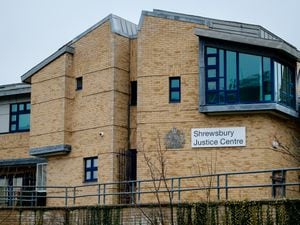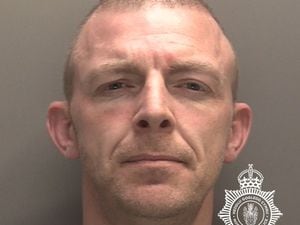Archie Spriggs murder: Other children will die if changes are not made, coroner warns
There will be future child deaths unless improvements are made to safeguarding, a coroner has warned following the murder in Shropshire of seven-year-old Archie Spriggs.
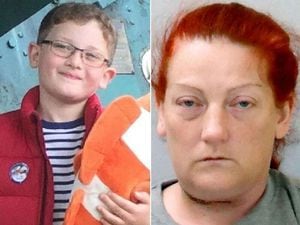
John Ellery, senior coroner for Shropshire and Telford & Wrekin, gave his grave assessment in a report calling on authorities to take urgent steps to ensure failures on the part of state bodies in respect of Archie do not put other children at risk.
An inquest concluded in November that Archie was unlawfully killed by his mother, Lesley Speed, at their home in Wall-under-Heywood, near Church Stretton, on September 21, 2017.
Archie was known to social services for most of his short life, and was the subject of an ongoing custody battle between Speed and his father Matthew Spriggs.
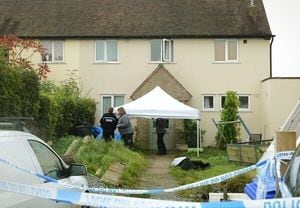
Mr Ellery has now issued what is known as a ‘Regulation 28 report’ to the UK’s chief coroner, on how future deaths could be prevented.
He said: “During the course of the investigation matters were raised giving rise to concern. Although they could not be said to be causative of Archie’s death, in my opinion there is a risk that future deaths will occur unless action is taken.”
The report repeats the eight areas of concern identified in the serious case review, and gives Shropshire Safeguarding Children’s Board and the Children and Family Court Advisory and Support Service (CAFCASS) until January 27 to respond.
It states: “Your response must contain details of action taken or proposed to be taken. Otherwise you must explain why no action is proposed.”
Among the recommendations are calls for improvements in how the safeguarding concerns for children caught up in “ongoing disputes” are to be handled in future as well as staff training and clarification on how cases are referred.
Lessons must be learned to protect others
The murder of seven year-old Archie has highlighted failings in his care by services responsible for his welfare.
Archie was smothered and strangled by Lesley Speed at the family home on the day she was due to attend a family court hearing as part of an ongoing custody dispute with Archie’s father Matthew Spriggs.
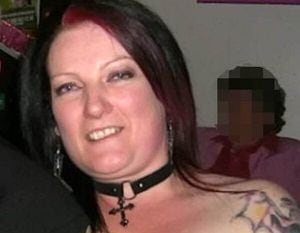
Speed denied killing Archie but was found guilty of murder in March 2018 and sentenced to life imprisonment, with a minimum term of 18 years.
The trial, and, in November 2019, the inquest, heard how opportunities for intervention were missed despite Mr Spriggs repeatedly reporting concerns for his son’s safety and wellbeing to social services, West Mercia Police, Rushbury Church of England Primary School, Ofsted and the NSPCC.
In-depth inquest coverage:
Mr Spriggs claimed that during a phone conversation with social services earlier in 2017, he asked: “‘What is it going to take for you to investigate? Bruises? Broken bones? Or my son to be killed by her?’”
Senior coroner John Ellery said at the inquest that there were two missed opportunities for Archie’s voice to be heard, including when aged four he made allegations that he had been assaulted by another man while in his mother’s care.
The second occasion was days before he was killed, when a visit should have been arranged by the Children and Family Court Advisory and Support Service as part of the family court proceedings.
Areas of concern after murder
Several areas of concern were identified in a serious case review following Archie’s murder, which made eight recommendations for improvement.
The inquest heard from senior figures within social services that changes had already been implemented.
Coroner John Ellery has now written to authorities demanding evidence of change – and requesting a timetable for changes that are to be made in the future. He concluded that Speed’s actions could not have been foreseen or prevented by any of the state agencies involved with the family, but has also expressed fears that other children could be in danger because of shortcomings.
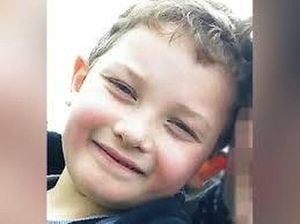
Mr Ellery recorded a ‘short form’ conclusion of unlawful killing, rather than a narrative conclusion which could have named state failings as a contributing factor. But he has now called on the Children and Family Court Advisory and Support Service and Shropshire Safeguarding Children’s Board to detail how they are addressing the areas of concern. He wants a reply by January 27.
He tells them: “Action should be taken to prevent future deaths and your organisations have the power to take action.”
Responses must be received by January 27 and the UK’s chief coroner will decide whether to make the documents public.
Eight recommendations for improvement
1. Shropshire Safeguarding Children’s Board (SSCB) to clarify, and subsequently audit the application of the referral pathway and decision-making process for referrals to early help and children’s social care. This should include the use and quality of written referral forms and feedback to referrers.
2. SSCB to seek regular assurance that:
i. Professionals understand how to refer urgent concerns in respect of cases open to children’s social care.
ii. Children’s social care provide a timely and child-centred response to this information.
3. SSCB to provide the multi-agency workforce with the knowledge and understanding of:
i. the impact of protracted private law proceedings on children’s emotional wellbeing.
ii. the factors to be considered and assessed in circumstances whereby separated parents make allegations about the welfare of their children.
iii. the features of filicide cases (Filicide is the deliberate act of a parent killing their own child.
4. To test the impact of recommendation (3) SSCB to conduct a multi-agency audit of the services provided to children referred to children’s social care whose parents are separated and where private law proceedings have taken place. The audit should consider the completion of whole family assessments and the response to safeguarding concerns and allegations of domestic abuse.
5. SSCB to work with Local Family Justice Board (LFJB) and Children and Family Court Advisory and Support Service (CAFCASS) to review the notification process for Section 37 reports to ensure timely and consistent arrangements.
6. CAFCASS to update their child protection policy to include when and how safeguarding referrals (child in need) should be made.
7. SSCB to engage with multi-agency frontline staff as well as parents/carers to explore their experiences, and any barriers, to working with fathers. The findings of this work should be considered and acted on by SSCB.
8. SSCB to create learning opportunities for the multi-agency workforce to come together and reflect on their approach to providing a whole family focus; including how they consider the impact of parenting capacity on children.

